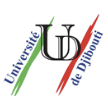Introduction to the University of Djibouti:
Introduction: The University of Djibouti is the only public university in the Republic of Djibouti, located in Djibouti City, the capital of Djibouti.
History and establishment: The University of Djibouti was established by decree on January 7, 2006, and its predecessor was the University of Djibouti Center.
School Strength
Student size: There were 2,500 students in 2008 and more than 7,000 students in 2015.
Faculty: It has a group of professional teachers, including researchers like Dr. Abdou Idriss Omar and lecturers in bioclimatology.
International Exchange: As a representative of Djibouti's higher education, it has certain academic exchanges and cooperation potential with universities and institutions in other countries, providing international exchange opportunities for students and teachers.
Institutional Nature: Public university, fully funded and managed by the government.
Educational philosophy: Committed to improving the education level of Djibouti, cultivating high-quality professionals for the country, focusing on the cultivation of students' practical ability, emphasizing the application of technological innovation in teaching, so that students can also master practical skills outside the classroom to meet the needs of national economic and social development.
Key disciplines: Due to the country's talent needs in engineering, law, medicine and other fields, these disciplines may be the key development directions of the University of Djibouti, such as energy engineering and civil engineering in the School of Engineering, medical majors in the School of Medicine, and law majors in the School of Law.
Faculty
School of Law, School of Economics and Management (FDEG)
School of Science (FS)
School of Humanities, Languages and Social Sciences (FLLSH)
School of Medicine
School of Engineering
Institute of Technology (IUT - I)
Institute of Higher Technical Services
Ranking: At present, there is no clear and specific ranking data for the University of Djibouti in the internationally renowned university ranking system, but it has a certain status and influence in the field of higher education in Africa.
Fees: As a public university, there may be government subsidies for domestic students, and the tuition fees are relatively low. There is no clear public information on the fees for international students, and you may need to consult the school specifically.
Campus environment: Located in Djibouti City, the school enjoys convenient transportation. The school has complete teaching facilities, such as a rich library, which provides students with good learning conditions. Campus security measures are in place to create a safe and comfortable learning and working environment for teachers and students.
-

Université de Djibouti
-

Mesoamerican University
-

Istmo University
-

Mariano Galvez University of Guatemala
-

Regional University of Guatemala
-

Galileo University
-

Francisco Marroquín University
-

Rafael Landívar University
-

University of the Valley of Guatemala
-

University of San Carlos of Guatemala
-

Technological Institute of Tlaxcala Plateau
-

Golfo University
-

Technological University of South Sonora
-

Technological University of Huejotzingo
-

Tizimín Institute of Technology
-

Chilpancingo Institute of Technology
